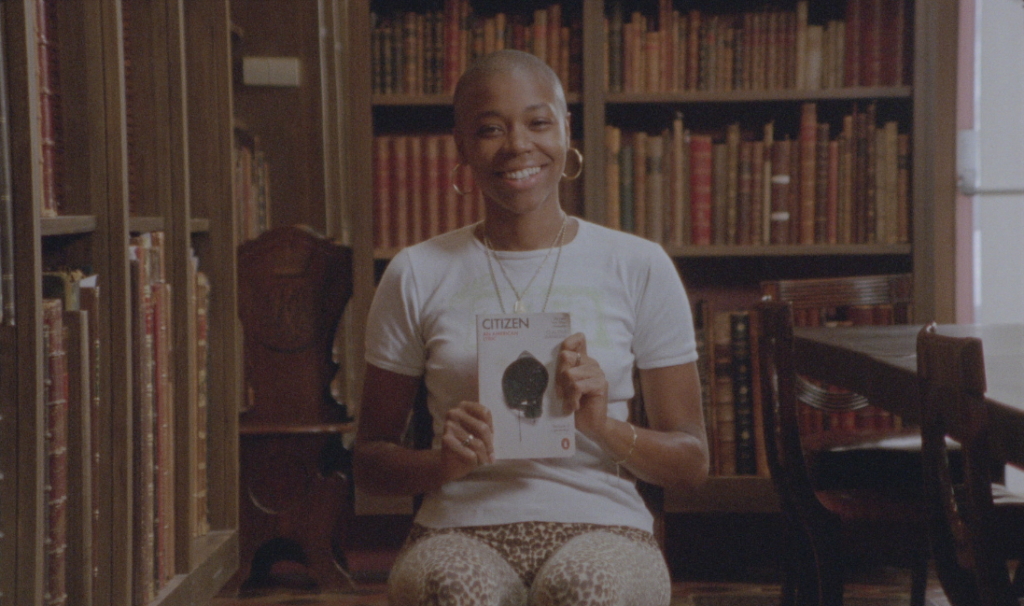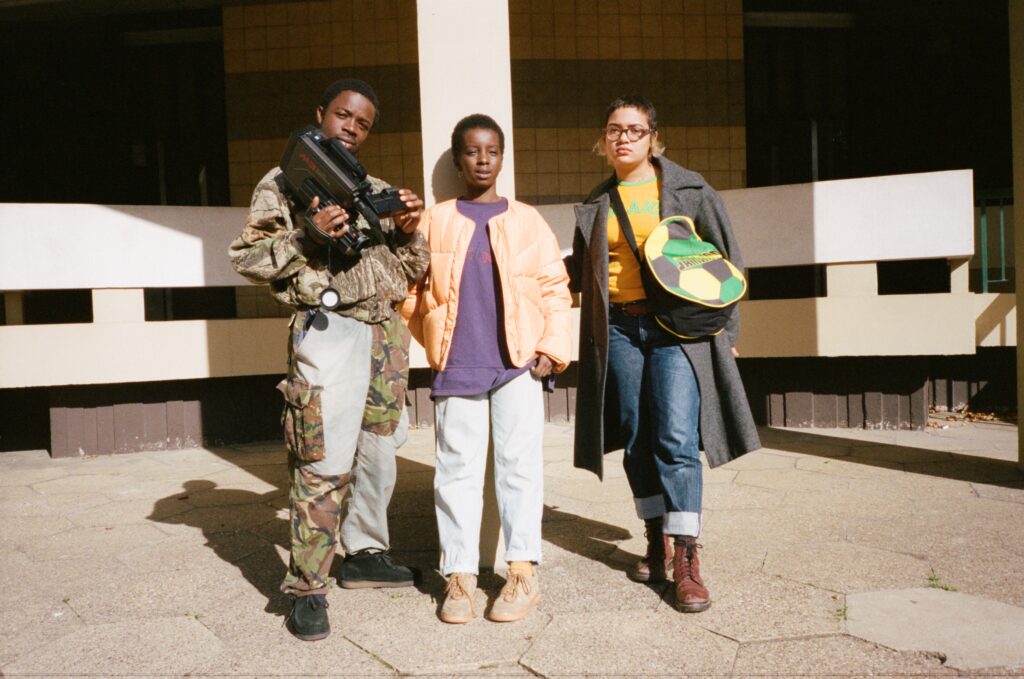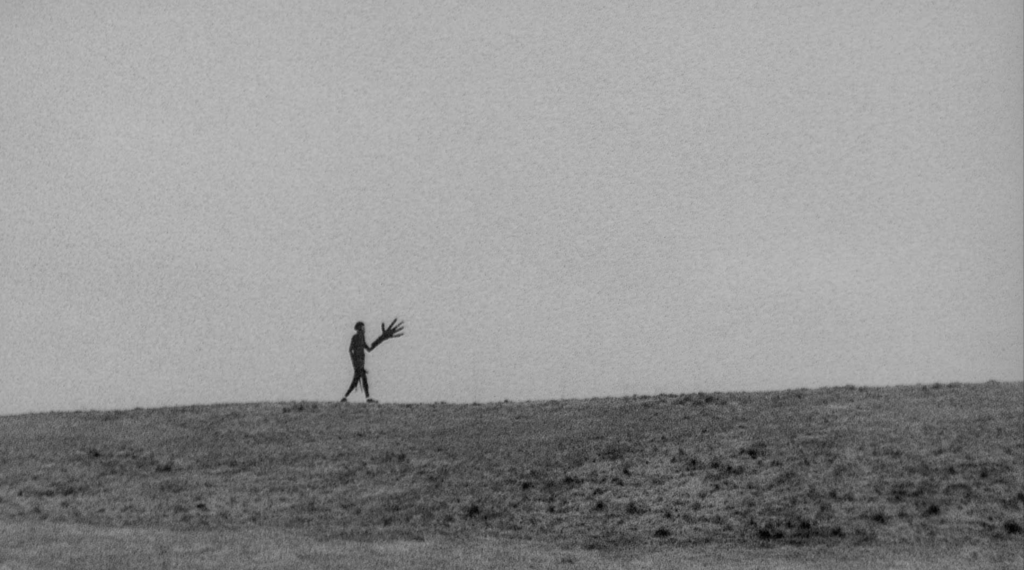Ayo Akingbade
In her own words, Ayo Akingbade’s work “addresses notions of urbanism, power and stance”. Characteristic of her films is a contemplation and celebration of the rhythms of everyday London life, as well as the histories and legacies that move through it. These are social and political, but they are also cinematic: the legacies of images.
Akingbade considers the legacies of images through a film language which is both unhurried and lyrical, inviting the viewer to pause and look more closely. Her work is as much concerned with the form in which cinema allows us to look, as with what the subject of that looking is.
In Tower XYZ (2016) and A is for Artist (2018)—two poetic, reflective short film works—Akingbade challenges the limited (and often stigmatised) representation of tower blocks and social housing in visual culture. Claudette’s Star (2019) explores the relationship between spectatorship and art, giving space to the “oppositional gaze” (a term formulated by bell hooks in her essay collection Black Looks: Race and Representation), as well as inspirations and perspectives of black people from within arts institutions As described by the film’s voiceover about the act of looking at a painting that moves you, Claudette’s Star explores the “magic quality of something you can’t really explain but feel” in both form and content.
Archive photographs and video pay tribute to Dora Boatemah in Street 66 (2018) and the Newham Monitoring Project in So They Say (2019): black and Asian community activists whose images are rarely seen and whose stories are often left out of historical accounts, despite their transformative legacies. In previous interviews, the filmmaker has pointed out the elitism and inaccessibility of working with archive material, underscoring the question: who decides the form in which stories of the past are told?
History, for Ayo Akingbade, is not about looking back to a neat box in the past. Rather, it is a lens for seeing the present, for considering viewpoints and for looking to the future. Her use of re-enacted and fictionalised time-ambiguous scenes in Dear Babylon (2019) and So They Say are woven into the films with present-day interviews and scenes of everyday city life. They bring attention to how legacies move through individual people, repeat in different yet similar ways, and remain in architectural spaces.
Urban settings are enmeshed with dreams and aspirations, collectivity and multiplicity, as well as being spaces literally shaped by power, enacted through gentrification and marginalisation. The imaginary, in Akingbade’s films, is not separate from reality but rather an active agent of it. Her work is unmistakably committed to the everyday life of its subjects (she is often one of them), and through these undramatic, quotidian scenes, rituals and gestures she pays tribute to the currents of energy that reside there and connect people—in the present, the past and the future.
In each of Akingbade’s films, there are often moments of pause. Sometimes the image is withdrawn, and the viewer stays for a moment looking at a screen with simply light or colour across it: a moment of meditation, for breath, for looking closer. Details are expertly composed, and resonate as something much bigger, beyond their short film form. Much of the filmmaker’s camerawork and editing echoes the affective movements of music, evoking again the “magic quality” alluded to in Claudette’s Star: that hard-to-describe ability to transport or absorb in a moment of reflection, connecting both with a world inside and a world outside of the body of the viewer.
The cinematic voice of Ayo Akingbade is distinctive and assured, yet not fixed or formulaic. It is a voice in-motion, skilfully regarding the present, the past, and heading forward, calmly focused and untroubled by any restrictive notions of storytelling or time. —Christina Demetriou
Akingbade’s trilogy of films act as an ode to her cinematic project on social housing, tied together through an interweaving of archive, fiction, 16mm film, digital, activism and dreams.







